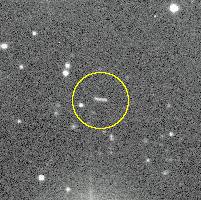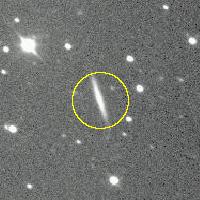Not an FMO
This line is caused by a cosmic ray. Compare its sharp, pixelated edge to the surrounding stars.

Not an FMO
This "trail" is just a diffraction spike from the star on the top edge of the image. We can immediately dismiss it due to the brightness gradient and the fact that it is perfectly vertical.

Not an FMO
This thin spike is due to a CCD flaw (possibly a bad CCD well bleeding charge.)

Not an FMO
This trail is so faint that your display may not make the line visible. Since the line appears between two stars it is arguably caused by 'bridging' (flux from the two stars causing a very faint object in between to appear as a line with endpoints in the stars). Regardless of the cause, this is too faint for submission as an FMO candidate.
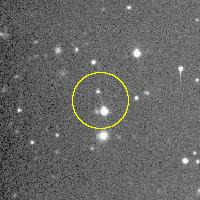
Aha! This is a reportable FMO.
MPC NAME: 2000 BO19
DATE DISCOVERED: January 30, 2000
DISCOVERED BY: Arianna Gleason
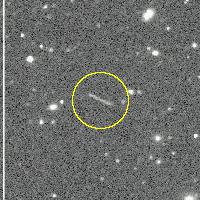
Not an FMO
While interesting to view, this is only a satellite. The bright dots are produced by the satellite's rotation as one side of satellite reflects more light than the other.
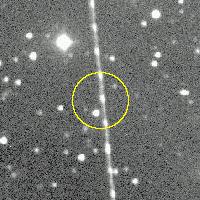
The cause of this apparent trail is unclear. It could be caused by 'bridging' between the star and a very faint galaxy or it may be a real FMO. Unfortunately, without two distinguishable endpoints and due to faintness of the trail this is unlikely to be a recoverable FMO. That said, either answer is correct - 'Do not report' is valid as the trail is too faint and 'Report' is valid because we could find the FMO (if real) in pass 1 and pass 3 with distinguishable endpoints.

This image is deceiving! It looks like a comet tail but is a diffraction spike from the nearby star. We took either answer for this question.
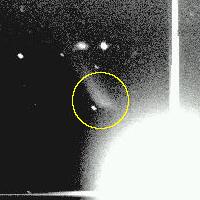
Did you get this correct!? This is a reportable FMO.
MPC NAME: 2000 FP10
DATE DISCOVERED: March 31, 2000
DISCOVERED BY: Joe Montani
